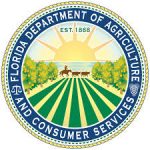
As the regulatory agency for charities in the state of Florida, the Florida Department of Agriculture and Consumer Services (FDACS) and Commissioner Nicole “Nikki” Fried and are joining the National Association of State Charities Officials and the Federal Trade Commission to raise awareness of consumer fraud during the second annual International Charity Fraud Awareness Week.
“Charitable donations should always go towards the intended purpose — unfortunately, scammers often pose as charities to try and take advantage of generous consumers,” stated Commissioner Nikki Fried. “As the state agency responsible for regulating charities and as Florida’s consumer clearinghouse, our Department is here to help, protect, and educate consumers on fraud at the gas pump, through telemarking schemes, and by sham charities.”
All charities soliciting within the state of Florida (excluding religious, educational, political, and governmental agencies) are required to register and file financial information with FDACS.
What should consumers do?
Consumers can call 1-800-HELP-FLA (1-800-FL-AYUDA en español), or visit FloridaConsumerHelp.com to find out if a charity is properly registered, how much the charity is spending on administration and fundraising, and how much money goes to actual programming. To file a complaint about a charity, use the Division of Consumer Services online form or call 1-800-HELP-FLA (1-800-FL-AYUDA en español).
According to Commissioner Fried and the Florida Department of Agriculture and Consumer Services, here are six tips to avoid scam charities:
- Search the organization’s name online along with key words like “complaint” and “scam.” Also look for reviews and feedback about the organization.
- Ask how exactly your donation will be used, what specific cause it will go towards, and how much of the contribution will be used for program services.
- Check if the organization is properly registered with the state through our Check-a-Charity tool.
- Request written information about the organization and a breakdown of how the money is being utilized. Consumers should not assume their donation will be spent a particular way.
- Verify whether or not your donation is tax deductible. Not every organization that solicits contributions is tax-deductible, ask for the organization’s tax-exempt number issued by the Internal Revenue Service (IRS) or use the IRS Tax Exempt Organization Search tool. Donations to individuals are not tax-deductible.
- Pay with a credit card or check to be safe. Do not make a donation in cash, by gift card, or by wiring money — these are forms of payment which lack any security measures that scammers take advantage of.
The Federal Trade Commission is a partner agency to FDACS at the federal level and also has helpful consumer information on how to donate wisely and avoid charity scams.
